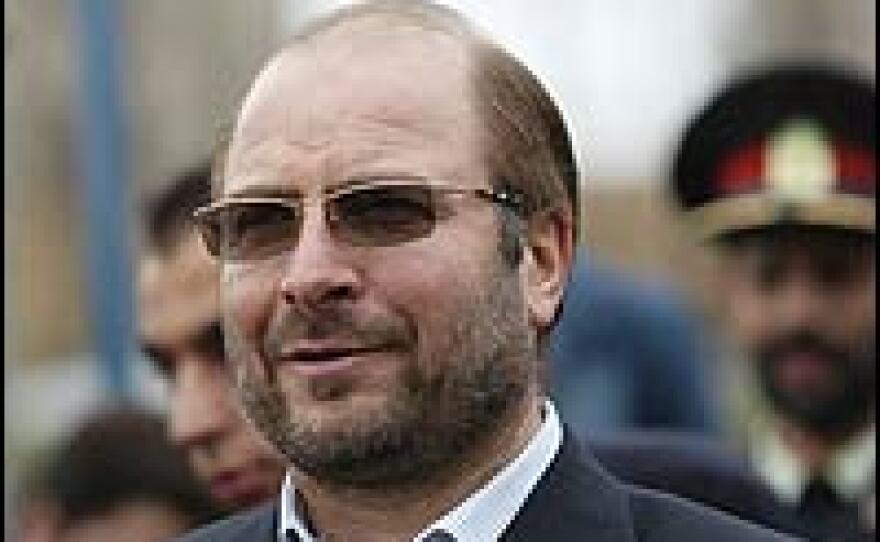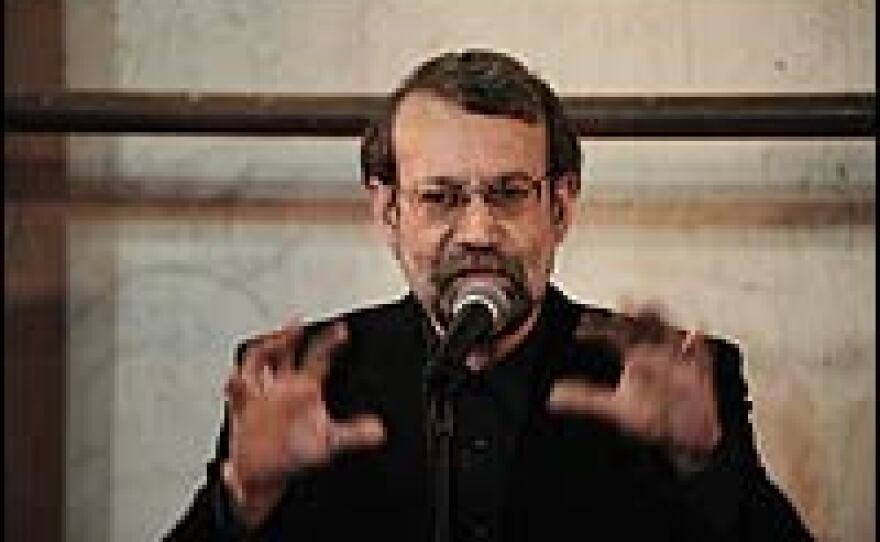

On the face of it, Iran's elections Friday would seem to have little relevance for anyone except the country's ruling clerics.
The religious board that supervises elections has disqualified thousands of independent and reform candidates. The list of those prevented from running in the election is said to include 19 members of parliament. At one point, the list included the grandson of the late Ayatollah Khomeini, the man who led the Iranian Revolution — although he has now been reinstated as a candidate.
But some observers say that even a flawed election can show the United States a lot about the dynamics of power among factions in the Iranian government.
Learning from the Election
"I don't mean to imply that Iranian elections are democratic, but the results are relevant," says Mohsen Milani, chairman of the department of government and international affairs at the University of South Florida in Tampa. "The elections can show who has the upper hand among Iran's governing elite," he says.
James Phillips, a research fellow at the Heritage Foundation, says the advantage is likely to belong to President Mahmoud Ahmadinejad.
"These aren't genuine elections," he says. "The Ayatollahs control who you can vote for. This could simply help Ahmadinejad cement his power."
Phillips notes that those who were forbidden to run in this election included some people who have held political office in the past. He says the process of disqualifying opposition candidates amounts to a "slow-motion purge" of reformers from the government.
Speaker Position Key
Milani says a key indicator of where power lies will be who becomes the new speaker of parliament.
"One person to watch is Mohammed Baqer Qalibaf, the mayor of Tehran," Milani says. "He could challenge Ahmadinejad for the presidency in 2009."
Qalibaf is 46 years old and, like Ahmadinejad, he served in Iran's Revolutionary Guard during the Iran-Iraq War. From 1999 to 2005, he served as the Islamic Republic's top police official. Qalibaf lost to Ahmadinejad during the presidential election of 2005, but later won the election to succeed Ahmadinejad as mayor of Tehran.
Phillips agrees that Qalibaf is one of the strongest members of what he calls the Iranian government's "internal loyal opposition." He characterizes Qalibaf as a hardliner, but says he lacks Ahmadinejad's strong religious focus.
"I would expect him to make another run against Ahmadinejad next year," Phillips says.
Voter Participation
Phillips says that when the election results come in, one of the most interesting counts will be the number of people who actually bother to vote.
"I think participation will be down," he says, "in part because the regime has given people such limited choices."
As to whether the United States should take sides in the election, Milani says, "I believe the U.S. should be quiet. Any attempt by the U.S. to praise one faction or another is just going to hurt them in the eyes of the Iranian public. Let them fight it out, and then we can see what happens."
Copyright 2022 NPR. To see more, visit https://www.npr.org. 9(MDAzMjM2NDYzMDEyMzc1Njk5NjAxNzY3OQ001))






